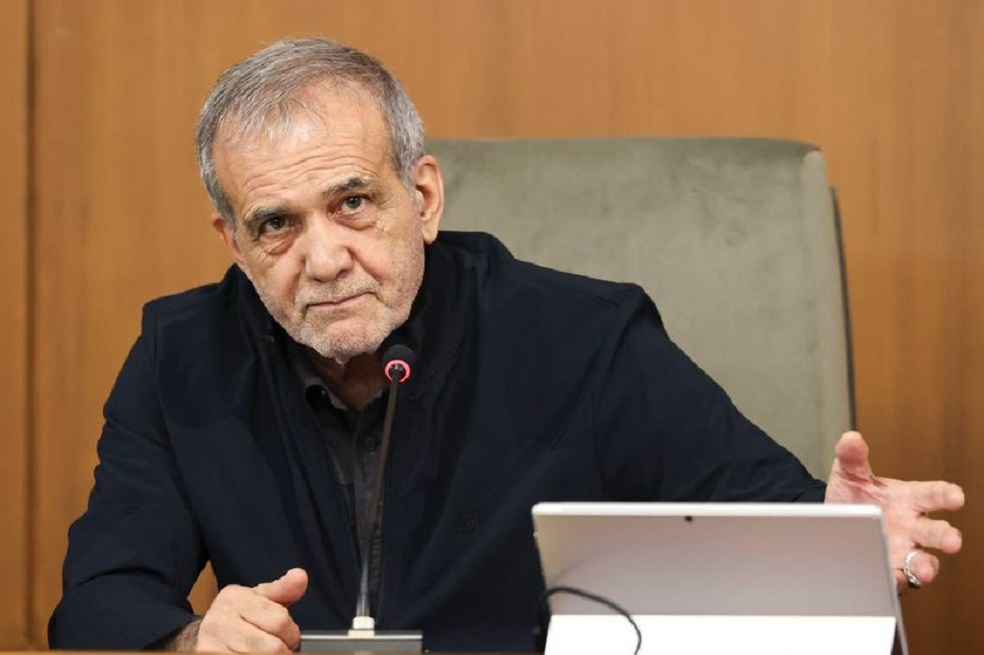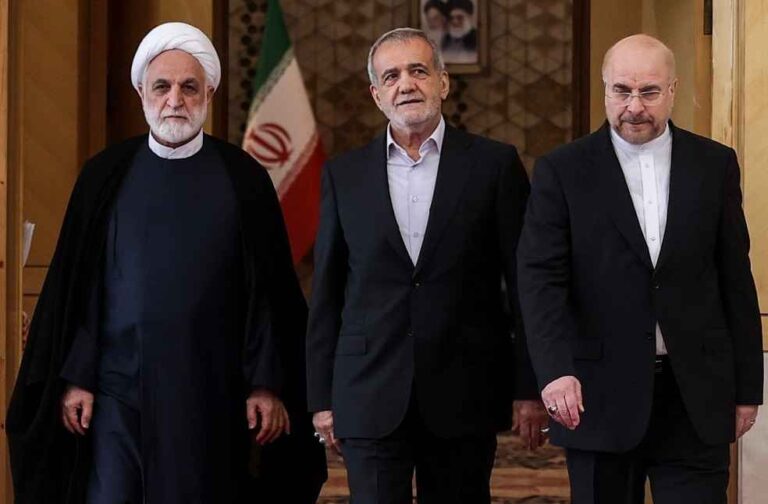Tehran: Iran’s hard-line parliament approved all members of reformist President Masoud Pezeshkian’s Cabinet on Wednesday. This marks the first time in over two decades that a president has successfully secured parliamentary approval for every member of their Cabinet, signaling a notable consensus within the country’s power structures.
Pezeshkian, who assumed the presidency following the tragic death of his predecessor in a helicopter crash in May, appears to have strategically selected a Cabinet that appeals across Iran’s complex political landscape. This early victory for Pezeshkian underscores his ability to navigate the intricate dynamics of Iran’s theocracy by choosing officials acceptable to both hard-liners and reformists.
In a symbolic move that highlights this unity, Pezeshkian posted a photo online standing alongside Iran’s judiciary chief, a senior Shiite cleric, and the parliament speaker, a hard-liner he had previously contested in elections. The caption, “Consensus for Iran,” encapsulates his approach to governance.
Despite this achievement, the Cabinet approval process was not without its challenges. Former Foreign Minister Mohamamad Javad Zarif, a key supporter of Pezeshkian during the presidential campaign, resigned from his position as vice president over disagreements with the Cabinet selections.
Among the notable appointments is Abbas Araghchi, 61, who has been named the new Foreign Minister. Araghchi is a seasoned diplomat, recognized for his role in negotiating the 2015 nuclear deal with world powers, which curbed Iran’s nuclear activities in exchange for lifting sanctions. Pezeshkian has expressed his intent to revive the nuclear deal, which was derailed in 2018 when the U.S. unilaterally withdrew from the agreement under President Donald Trump.

Aziz Nasirzadeh, the former chief of Iran’s air force, received the highest support from lawmakers, securing 281 out of 288 votes to become the new Defense Minister. Conversely, Health Minister Mohammad Reza Zafarghandi garnered the lowest approval with 163 votes.
In a historic move, Farzaneh Sadegh, a 47-year-old architect, was approved as the Housing and Road Minister, making her the first female minister in Iran in over a decade, receiving 231 votes.
Other key appointments include Ismail Khatib as Intelligence Minister and Amin Hossein Rahimi as Justice Minister, both of whom previously served under the late President Ebrahim Raisi. Additionally, Abbas Aliabadi, who was Raisi’s Minister of Industries, has been appointed as the new Energy Minister.
Traditionally, Iran’s parliament has been known for rejecting proposed ministers, making Pezeshkian’s success even more remarkable. The last time a president received unanimous approval for all his proposed ministers was in 2001, under former reformist President Mohammad Khatami.
Pezeshkian’s early success in office suggests a promising start, but the challenges ahead will test whether this initial consensus can be sustained as he tackles the complex issues facing Iran.
MOST READ | UK Riots: Pakistani journalist arrested over fake news



